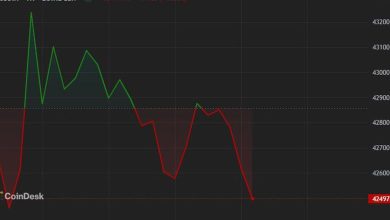Why a crypto loophole could devastate rural economies: op-ed

This is a guest opinion column
As a State Senator representing Calhoun and Talladega Counties, I see firsthand how smart policy and strong partnerships can drive economic growth, especially in rural communities. From streamlining business registrations to working alongside local chambers of commerce, my office prioritized supporting small businesses, family farmers, community banks, and the agricultural backbone of our state. That experience reinforced a simple truth: when rural economies thrive, all of Alabama benefits.
That is why I feel compelled to speak out about a growing threat that most Americans do not see coming: a loophole in a federal bill, called the GENIUS Act. This loophole allows cryptocurrency platforms to distribute financial rewards. These platforms do not abide by the same regulations and standards as traditional banks and because of this are not as safe and do not qualify for FDIC insurance, but they can offer what appear to be lucrative rewards, such as high interest or incentives.
These rewards could prompt people to withdraw funds or close accounts, reducing deposits at small community banks which are the lifeline for local economies, especially in many rural and underserved areas. Unlike large banks, community banks depend on local deposits to fund their lending. If those deposits decrease, their ability to offer loans to individuals, families and small businesses will be significantly restricted.
Over time, this reduction in capital could force local banks to close their doors, which would set off a ripple effect across entire communities. Without access to affordable lending local businesses, from main street shops to family-run farms, may struggle to secure the credit they need to operate or grow.
For our rural farming communities in particular, where margins are thin and seasonal cash flow is critical, the loss of a trusted lending partner could be devastating. Farms may find themselves unable to purchase seed, equipment, or cover expenses during a bad harvest year. Entrepreneurs might delay or abandon plans to expand. Jobs could be lost, and local economies weakened, all stemming from a policy loophole that undermines the financial institutions these communities rely on most.
As discussed, since these investments in cryptocurrency aren’t protected by the FDIC if a crypto platform collapses, as we have seen with multiple high-profile failures in recent years, there is no safety net. That means a small business owner in Anniston or Sylacauga who trusted a crypto company with their working capital could see their entire savings vanish overnight. On the other hand, if a community bank fails, its customers are protected—up to $250,000 per depositor—thanks to the FDIC.
This rewards or interest loophole clearly endangers American families and businesses and threatens the very infrastructure that supports our local economies and the entrepreneurial spirit we have worked so hard to cultivate.
Allowing these cryptocurrency companies to function like banks, offering rewards or yield-bearing products, without requiring them to play by the same rules is not innovation. It is regulatory arbitrage, and it is putting the livelihood of American families and our local economies at risk.
Alabama families, entrepreneurs, small businesses, and farmers deserve reliable, regulated financial partners. I encourage the U.S. House and Senate, along with our congressional delegation, to take the lead on this pressing issue and fix this potentially devastating loophole.
Keith Kelley serves in the Alabama State Senate representing Calhoun and Talladega Counties.
If you purchase a product or register for an account through a link on our site, we may receive compensation. By using this site, you consent to our User Agreement and agree that your clicks, interactions, and personal information may be collected, recorded, and/or stored by us and social media and other third-party partners in accordance with our Privacy Policy.




